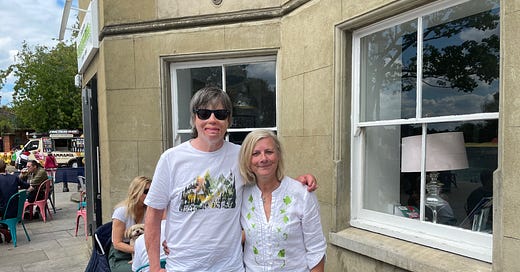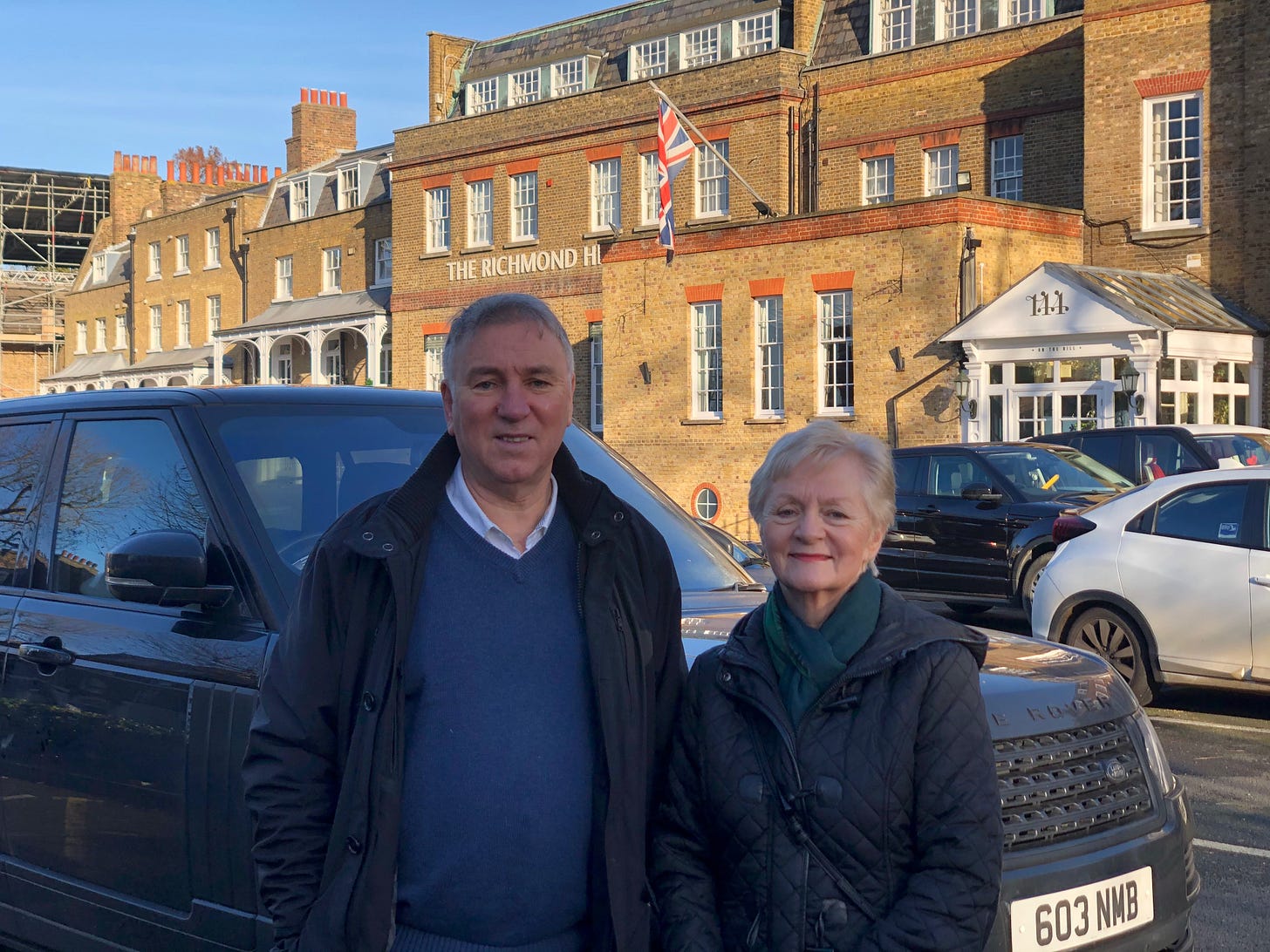Post 28. She Helped Me Heal—Body, Mind, and Spirit
A Legacy of Care: Honouring the People Who Saved Me
I hadn’t seen Claire Clark in over twenty years. How had I let it go so long? If I had to choose one person who played the most crucial role in my recovery outside of family and friends, it would easily be Claire, my former physiotherapist.
Once I was discharged and my medical treatment came to an end, my focus shifted entirely to living life to the fullest. I wasn’t running from trauma exactly, but I was determined not to be defined by it. With that mindset, it’s easy to let the connections to those who helped you slip away over time.
Medical professionals, teachers, and coaches often don’t get closure on the impact they’ve had. Most of their satisfaction comes from doing a job well in the moment, hoping it leads to bigger and better things for the person they’re helping. But on the other side, those of us who were supported sometimes forget to look back and thank those who made a difference. It’s something I’m determined to change.
Seeking out Eddie, my first care assistant, and meeting him again was a special moment for us both. I knew I needed to do the same with Claire.
Claire wasn’t just another medical professional in my journey. The work she did with me went far beyond the standard treatment plan. She treated me like an equal from day one. There was no pity, no patronising. She knew how to challenge me just enough to push through the pain without pushing me too far. She made me feel strong when I didn’t think I was, but she also had no problem taking the piss out of me when needed, keeping my ego in check.
But most importantly, Claire made me feel normal when everything else in my life was anything but. That’s a gift I’ll never forget. I needed her to know that.
Thank you, Claire
When we finally met up again, after all those years, we didn’t stop talking for 3.5 hours over lunch by the Thames. It was full of laughter and warmth but also tinged with sadness. I learned that Claire, like my consultant Mr. John Clarke, had faced unimaginable personal loss. Both of them had poured so much care and expertise into my recovery, and life had cruelly thrown tragedy their way in return. My heart broke for them.
Knowing about these losses makes me even more determined to help others. Their legacy is woven into my story and will continue through the work I’m doing. Hearing Claire’s reflections on our time together stirred up so many memories and emotions. I want to share some of her words with you now.
Claire’s Reflections
“You just don’t realise the impact you have on people. There were a few people I thought about so often, and you were one of them. I used to send cards to your mum and dad. I was so happy when you got in touch.”
“We often don’t get to see things from your perspective. Once you’re discharged, that’s kind of it. It’s nice to get feedback about the impact we had, so when you reached out, I was like, yes, I’d love to meet up.”
“You don’t want to be haunted by all the horrific experiences you had, but you do need to acknowledge them and how they shaped you. You’ve turned into a very well-rounded, grounded, stable human being despite all that trauma.”
Claire’s words reminded me just how much strength I had to summon to get through those years. She saw something in me early on—a determination to take charge of my recovery. But it wasn’t all me. The environment at Queen Mary’s was driven by excellence, largely thanks to Mr. Clarke’s demanding leadership.
“You described Mr. Clarke as a ‘nutty professor,’ and I hooted because that’s exactly how he ran the burns unit day to day,” Claire said, laughing.
I thrived off my battles with this “nutty professor”
“He loved a good battle, even with the registrars. I don’t know if you remember the ward rounds, but he used to have them quaking in their boots. I used to love ward round days, especially if there were new registrars on the rotation. He’d grill them: ‘Right, what’s happening with this patient? What kind of fuckwit are you? You don’t know what’s going on? Why are you here if you’re not going to participate?’ He just wanted people to be the best versions of themselves, whether you were a patient or a member of staff.”
Claire reflected on how the team at Queen Mary’s was unlike any other she’d worked with.
“Mr. Clarke was so at the top of his game that he demanded 110% from everyone around him, and that’s exactly what he got. He had their backs as long as they did their jobs. When I look back at that time, it was the best of the best. We had a once-in-a-lifetime team.”
That drive for excellence extended to how they treated me as a patient.
“It was so important to get things normal for you. That struck me from the very beginning—your determination to just get on and do things. Early on, I realised, okay, Marc knows what he wants. Where possible, we’re going to support him. You weren’t reckless, but you were determined. That was crucial to your recovery.”
Claire talked about how they had to walk a fine line—challenging me just enough without pushing too far.
“Sympathy and pity served no purpose for you. You needed empathy. We needed to understand when you were in pain or having a bad day but also keep you moving forward. It’s a difficult balance, but you made it easy. You’d tell us when enough was enough, but you’d also try your hardest. That transparency made everything work.”
She had strong memories of meeting my mum, too.
“Your mum, for me, was my idol. When I first met her, she was fierce. I remember thinking, if this is the mother, God knows what I’m going to have to deal with from her son! But as our relationship developed, I thought, yep, he’s his mother’s son. Her fire and drive were incredible. Your dad was more in the background, but equally important in keeping the family together.”
Mum (R) may be little but don’t mess with her ;)
These reflections are just a glimpse into what made that period so formative for me. Claire and the rest of the team at Queen Mary’s weren’t just doing their jobs. They were helping me reclaim my life, pushing me to become someone who wouldn’t be defined by trauma.
As Claire said:
“Your accident almost set you free in some ways. You never had any attitude. You channeled your determination into beating the system instead. It was incredible to watch. You’d already matured beyond your years, and you knew exactly where you wanted to go. We were just along for the ride.”
I’m endlessly grateful to Claire, Mr. Clarke, and everyone (some still to feature) who played a role in my recovery. This process of reconnecting with those who helped me is one of the most meaningful things I’ve done. It’s a reminder that healing isn’t just about the body—it’s about the people who walk the journey with you.






